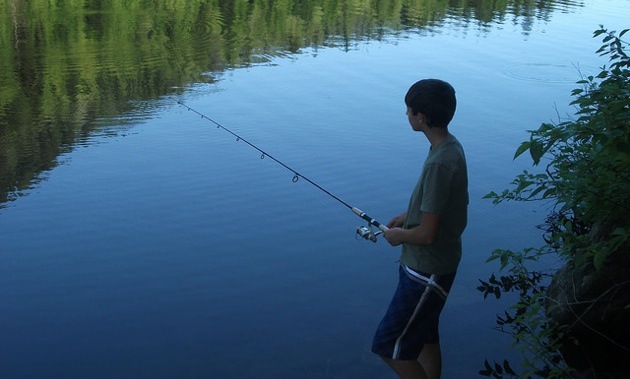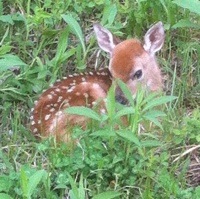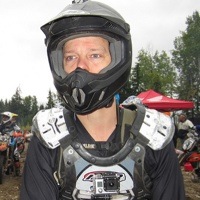Education is crucial for many aspects of life, and environmental stewardship is one of these areas. Recently a photo was published displaying the mess left behind by irresponsible campers who left an area of southeastern B.C. devastated by garbage and vandalism. The headline was worded in a way that provoked provincial warfare between many a keyboard warrior. Is it really a provincial issue? I think not.
Growing up in Calgary, I spent my youth enjoying the backcountry with my family. My parents were avid outdoorspeople and they gifted us with this privilege. Although we lived in the hustle and bustle of the city, Kananaskis country was our getaway. Impressed upon my brother and I was the fact that we must never leave a trace of garbage or environmental impact, as we were merely visitors who were fortunate enough to use the backcountry. Camp clean-up included not only picking up garbage, but raking the ground to further eliminate any trace that we were there. We’d visit abandoned campsites where fires were left smouldering and pour bucket upon buckets of water, puzzled by the fact that someone could be so careless as to leave a fire unattended.
My mind goes back to my days in elementary school, where a conservation officer presented stewardship education to students.I couldn’t have been more than six or seven years old, yet I still remember the pictures of the duck caught in the plastic six-pack holder and the whiskeyjack with his beak caught in a pop can tab. It was a powerful message and a powerful program to help mentor youth into responsible behaviour.
I remember TV commercials that said “Make sure the fire’s out. You’ve got to give us a hand.” That jingle has stayed with me for my entire life, reminding me that the fire isn’t out until you can touch the embers after stirring and soaking with buckets of water.
Why do we even question the behaviour of youth littering in the backcountry when environmental outreach seems to have fallen by the wayside? Whose responsibility is it? Are conservation officers and police responsible for cracking down on the behaviour after the fact?
It truly does take a village. We are all responsible for mentoring our youth and providing the education and the opportunity to enjoy and appreciate the backcountry. Many children grow up with very little understanding of or first-hand experience with life in the backcountry.
My children were fortunate, as they literally grew up in the backcountry. Many of our days homeschooling were high atop a mountain, where their studies were not only found in books, but real life experience. I had a very firm rule in our household. With the exception of wasps and mosquitos, “If you kill it, you eat it."
One young boy my son Leo was playing with was intent upon dissecting the frog they found. My son told the boy, "you will have to eat it if you kill it. You can’t take a life for no reason." The boys scurried up the bank to talk to me, where we then discussed the value of life. We had a very important discussion about why there are specific seasons for hunting and why we should not harass or harm animals in the backcountry. Knowing better, he then made better choices.
Seventeen-year-old Heather Critchlow of Salmo, British Columbia, cherishes her days in the backcountry fishing and hunting with her father.
“Our outdoorsy lifestyle had a huge hand in my growing up. I find it has grounded me and made me appreciate the beauty of life."
A father and daughter bond forged from adventure in the backcountry has kept this family close. Following this strong young lady on Facebook, I quite often smile. “Just saw a moose on the way to school. I love living in the Kootenays,” was a recent post that really spoke volumes about her appreciation and love of the backcountry.
Youth who learn appreciation for the backcountry will be the leaders and mentors for their peers.
Instead of playing into the drama of the young hooligans who littered and vandalized the beautiful British Columbia backcountry, we can choose to make a difference today.
- Take your own children into the backcountry for firsthand adventure, where they can develop understanding and appreciation for all that is wild.
- Mentor other youth, and give them the opportunity for backcountry adventure. For some parents, the backcountry is as foreign as Mars, so reach out to these families and their children. Many single parents are struggling to simply get by, let alone plan a trip to the great outdoors. Make a difference by reaching out.
- Request Conservation outreach in your child’s school. There is a need, and there is a demand, but quite often without enough prompting, environmental outreach programs are cut due to budget constraints.
- Join your local ATV, rod and gun, and snowmobile club with your family. Clubs provide mentorship and education that inspire right behavior. This is the village to raise a child motto in action.
- Speak up. Talk to your children about environmental impact and life choices pertaining to the backcountry. Unfortunately, some of today’s youth associate the backcountry with bush parties and unbridled mayhem. We’ve all been there: bush parties, pit parties and those long weekend or grad parties out in the bush away from the bright lights of the city. They are a reality, but we as mentoring adults can help shape mindset and behaviour so fun and environmental responsibility can go hand in hand.
Youth who grow up with an appreciation for the backcountry will make right choices when given the chance.








Comments